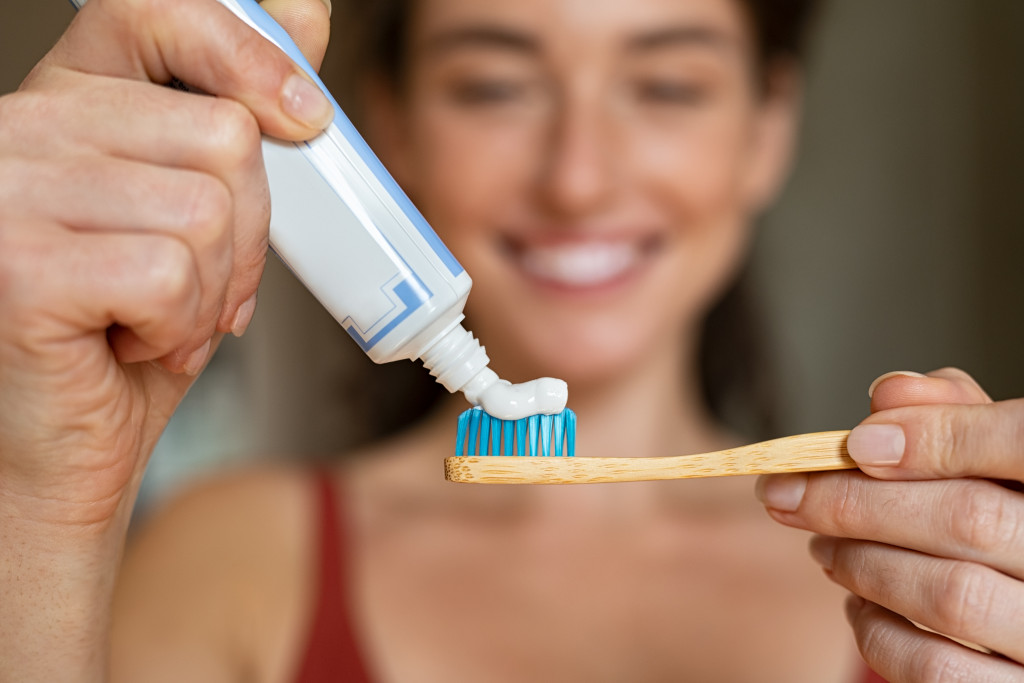Taking a proactive approach to your oral health care is essential for maintaining healthy teeth and gums. If you are not already making an effort to maintain excellent oral hygiene, here are some steps you can take to better protect your teeth and gums from cavities, gum disease, and other common problems.
1. Brush Regularly
You should brush your teeth at least twice a day for two minutes each time. Make sure that you also floss once a day, as well as it’s important to remove food particles from between the teeth so that plaque does not build up in those areas.
You should also use mouthwash after brushing and flossing. Your dentist may recommend a special type of mouthwash based on your individual needs, so ask them about their recommendations.
If possible, try to brush after eating sugary or acidic foods, as these substances can cause tooth decay. Likewise, try to avoid sugary snacks, as they can also contribute to tooth decay.
2. Visit the Dentist Regularly
It’s important to make regular visits to the dentist, even if there is no obvious problem with your teeth or gums. Most dentists recommend visiting every six months for a routine cleaning and check-up.
During these visits, they can identify any potential problems before they become more serious issues. Additionally, they can provide advice on how to improve your overall oral hygiene habits.
This can range from tips on proper brushing techniques to advice on which type of toothpaste or mouthwash is best for your specific needs. You can even ask them about professional teeth whitening methods if you want a brighter smile.
3. Maintain Good Diet Habits
Eating a balanced diet is important for good overall health, but it is especially important for healthy teeth and gums. Eating sugary foods increases your risk of cavities because the sugar feeds bacteria in the mouth, which produces acids that can damage tooth enamel over time.
Eating crunchy fruits and vegetables like apples and carrots helps clean off plaque from the surface of the teeth as well as increases saliva production, which helps wash away bacteria in the mouth. It’s also important to drink plenty of water throughout the day as this will help keep harmful bacteria levels low in the mouth while providing hydration needed for healthier-looking skin and hair too!
To remind yourself of these habits, try setting up an alarm on your phone for the days and times when you should brush and floss. You can also use sticky notes to remind yourself to take a few extra moments each day to drink more water or eat a healthy snack instead of indulging in something sugary.
4. Get Dental Implants
Dental implants can be a great way to restore your smile and protect the surrounding teeth from shifting out of place if you have missing teeth. These are permanent replacements for missing teeth that look and feel just like natural teeth.
Your dentist will surgically insert the implant into your jawbone and then attach a crown or bridge to the implant. The result is a natural-looking and functioning smile that can last many years.
Furthermore, dental implants also help prevent bone loss in the jaw, which can result from missing teeth. This is because the implant stimulates the bone, which helps the jawbone stay strong and healthy.
5. Get Professional Cleanings
In addition to routine cleaning appointments with your dentist or hygienist every six months, getting professional cleanings as needed when experiencing dental issues such as cavities or gum disease is important. Professional cleanings help remove plaque buildup that could lead to further problems if left untreated.
They may also include treatments such as fluoride application or sealants which can help protect against cavities in between visits with your dentist or hygienist. This will involve using special tools to scrape away tartar buildup and then polish the surface of the teeth for a brighter, healthier smile.
Additionally, your dentist or hygienist may recommend a professional cleaning if you don’t brush and floss regularly to remove plaque buildup.
6. Use Fluoride Toothpaste
Fluoride helps strengthen enamel, protecting against tooth decay caused by acid erosion from sugary foods and drinks consumed over time — so make sure you’re using fluoride toothpaste!
Fluoride is found naturally in some foods but not all. Talk with your dentist about what types of products have adequate amounts of fluoride added so that you are receiving enough protection against tooth decay prevention daily!
Moreover, your dentist or hygienist can also recommend specific fluoride treatments to strengthen your enamel and reduce the risk of cavities. This is especially important if you have gum disease or active cavities!
Taking proactive steps towards protecting one’s oral health is essential for maintaining healthy teeth and gums free from cavities, gum disease, and other common issues associated with poor oral hygiene habits, such as brushing irregularly or eating sugary foods often without proper care afterward. By implementing these steps into their daily routine—brushing regularly two times per day (for two minutes each time), visiting the dentist regularly (every six months), maintaining good diet habits (eating crunchy fruits and drinking plenty of water), getting dental implants or professional cleanings when needed, and using fluoride toothpaste—anyone can ensure optimal oral health care! So start today by taking charge of your dental health.

